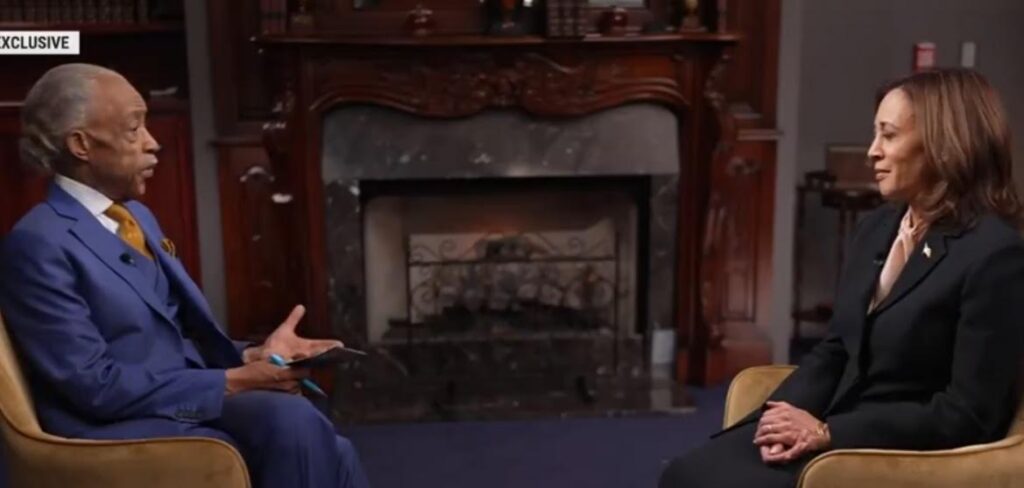In an interview hosted by Al Sharpton on MSNBC’s “Politics Nation,” Vice President Kamala Harris discussed the challenges she faces in garnering support for her 2024 presidential campaign, particularly from Black men. The interview aired on a Sunday and was pre-recorded, leading to considerable commentary online about the sentiments expressed. Sharpton pointed out a significant trend: that many men, particularly Black men, seem to be showing less enthusiasm for Harris as a candidate. This trend prompted criticism from figures like former President Barack Obama, who recently appealed to Black men to support Harris, deeming their lack of support detrimental to the Democratic cause. However, Obama’s approach appeared to backfire, with Black voters expressing frustration at what they viewed as condescension from a figure who often lectures them when elections are nearing, highlighting a growing discontent among segments of the Black electorate.
The backlash against Obama’s appeal was indicative of a broader sentiment among Black Americans, who voiced their disillusionment with his approach. Many took to social media to express their disappointment, suggesting that his attempts to rally support for Harris were both ineffective and misplaced. This situation reflects a deeper divide within the Democratic party, particularly in how African American voters, especially men, feel their needs and opinions are acknowledged—or overlooked—by prominent leaders. The ideological disconnect signals potential challenges for the Harris campaign as it seeks to unify the party and encourage voter participation amid increasing skepticism among pivotal voter demographics.
In addition to Obama’s appeals, Harris’s campaign tried to engage different voter blocks through initiatives like “White Dudes for Harris,” aimed at encouraging white male support. However, this strategy met with ridicule, especially from Donald Trump, who humorously scorned the initiative during a charity event. He suggested that the group’s supporters may not be reliable, insinuating that their personal relationships would sway their votes in his favor. This kind of mockery from Trump underscores the precarious position Harris finds herself in as both the Vice President and a candidate trying to establish broader appeal while managing public perceptions.
Throughout the interview, Sharpton pressed Harris on whether the lack of support from men could be categorized as misogyny. Harris, responding in a convoluted manner, acknowledged some of the resistance might indeed stem from misogynistic attitudes. The point raised not only touches on her candidacy but reflects a larger discourse on gender dynamics in political support. However, critics quickly highlighted this moment as an example of how her messaging could be perceived as deflective rather than addressing the root issues that may be affecting her support base.
Referencing the economic situation, Harris faced hard questions about rising grocery prices, which she attributed to ongoing challenges without providing a clear answer for why these issues had persisted during her term. This admission raised eyebrows, particularly among those who contend that the administration needs to take stronger action to alleviate the financial strain felt by many Americans. Critics suggested that her inability to provide concrete solutions damages her credibility as a leader who can effectively manage economic issues on a global scale.
Amid this turbulent political landscape, many observers are left wondering how Harris will navigate the challenges of her campaign. The pushback from both her own demographic supporters and opposition figures like Trump illustrates a fraught environment as candidates prepare for the 2024 election. The effectiveness of her strategies to unite diverse voter blocs and counteract criticisms remains uncertain, and the scrutiny she faced during her interview exemplifies the larger challenges that await her in the run-up to the election. As political tensions rise and the stakes increase, Kamala Harris’s ability to articulate a clear and confident vision will be crucial for her electoral success, especially in engaging disenchanted voters who feel neglected by both the party establishment and political elites.

